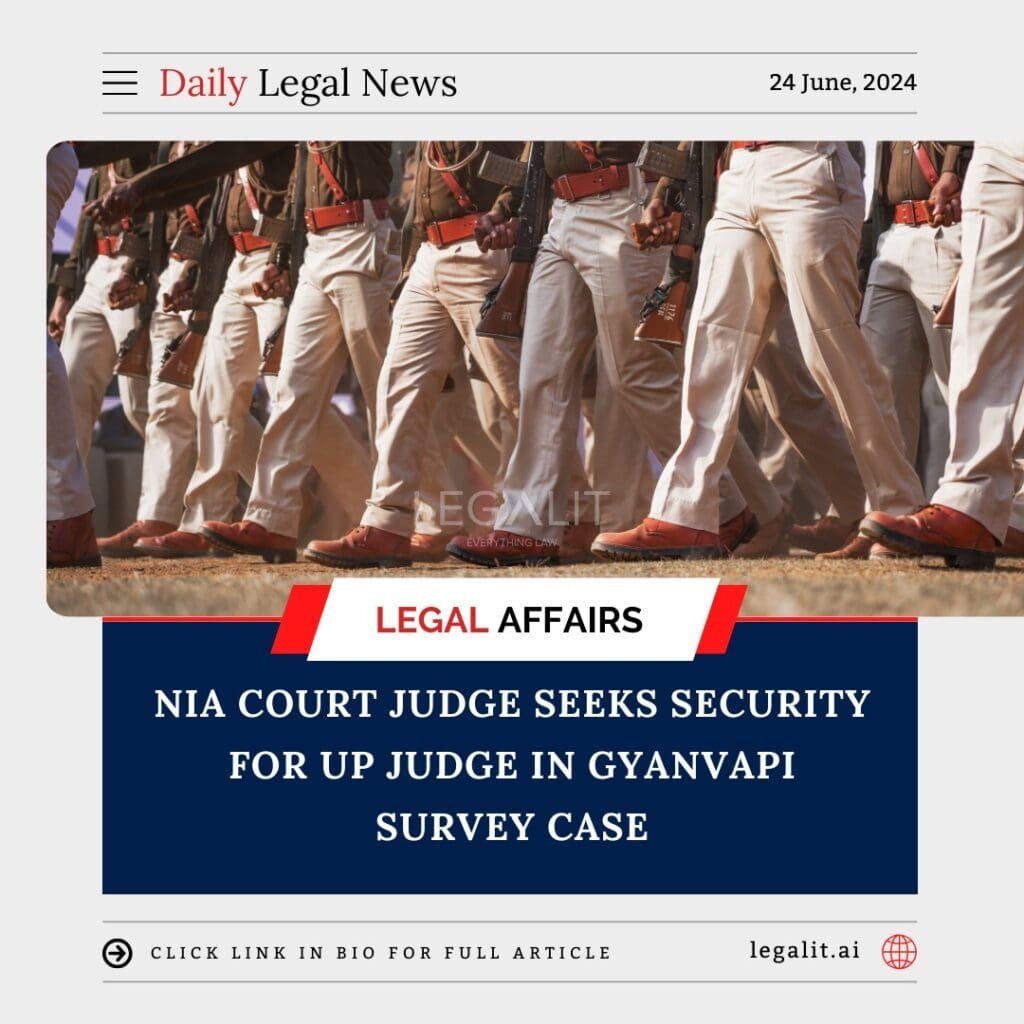
In a significant development, a judge from the National Investigation Agency (NIA) has sought enhanced security for a fellow judge from Uttar Pradesh who ordered the Gyanvapi survey, citing threats from Islamic fundamentalist forces. The request underscores the ongoing challenges faced by the judiciary in dealing with sensitive and high-profile cases involving religious and communal tensions.
Background of the Case
The controversy stems from the Gyanvapi mosque case in Varanasi, Uttar Pradesh, where a court-ordered survey has sparked significant public and political discourse. The survey aims to ascertain the presence of Hindu religious symbols within the mosque complex, which has been a point of contention between Hindu and Muslim communities.
Security Concerns
The judge who issued the survey order has been facing serious threats, prompting an NIA court judge to seek immediate and comprehensive security measures for him. This request highlights the precarious position of judicial officers handling cases that can potentially inflame communal sentiments. The heightened threat perception necessitates robust security protocols to ensure the safety and independence of the judiciary.
Judicial Security Measures
Historically, the Indian judiciary has faced various security challenges, particularly for judges handling sensitive cases. The Madras High Court, for example, has mandated round-the-clock security for judges dealing with critical cases, emphasizing the need for enhanced security measures based on threat assessments. Similarly, the Supreme Court has taken suo motu cognizance of attacks on judges, underscoring the importance of their safety for the effective functioning of the judiciary【8†source】【9†source】.
Implications for Judicial Independence
The need for security for judges underscores the broader implications for judicial independence in India. Ensuring the safety of judges is crucial for maintaining the rule of law and upholding democratic principles. The judiciary must be able to operate without fear of retribution or violence, particularly when adjudicating cases that touch upon sensitive religious or communal issues【10†source】.
In conclusion, the request for enhanced security for the UP judge in the Gyanvapi survey case highlights the ongoing threats faced by the judiciary in India. It underscores the critical need for robust security measures to protect judges and ensure the continued independence and effectiveness of the judicial system in handling contentious and sensitive matters.